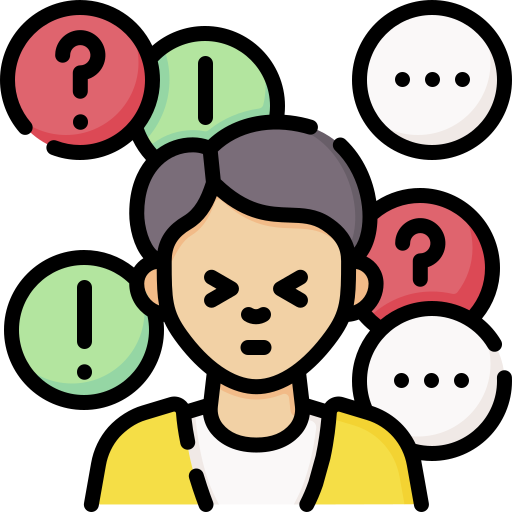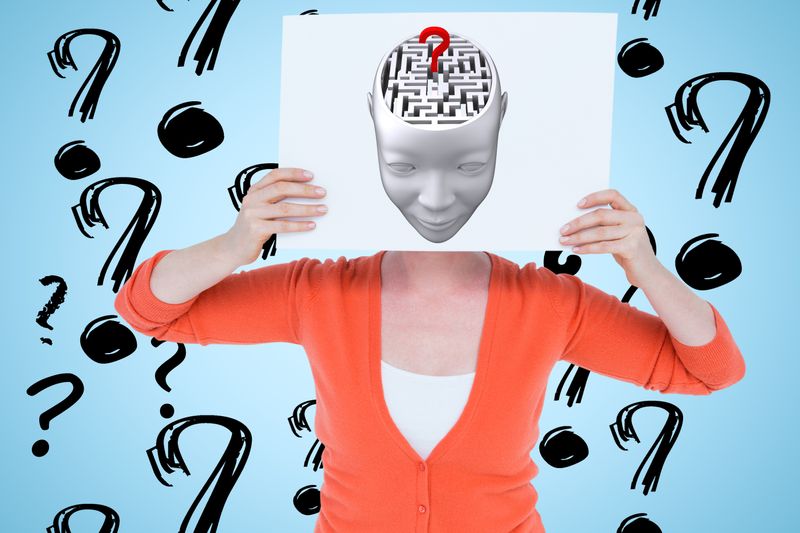
This logo isn't an ad or affiliate link. It's an organization that shares in our mission, and empowered the authors to share their insights in Byte form.
Rumie vets Bytes for compliance with our
Standards.
The organization is responsible for the completeness and reliability of the content.
Learn more
about how Rumie works with partners.
Sami was raised in a troubled home where they experienced childhood trauma.

Sami was adopted as a teenager by a loving couple. Recently, their parents have noticed very concerning signs. Sami:
Forgets large chunks of their past
Says the world isn't real
Seems confused and disoriented
Talks about wanting to hurt themself
What's going on with Sami?
Sami may be experiencing a dissociative disorder, a mental health condition that requires professional intervention and treatment.
Types of Dissociative Disorders
Did you know?
What Causes Dissociative Disorders?
Dissociation typically occurs as the result of trauma as the mind tries to protect itself from the terrible event(s) that occurred.
 Photo by M. on Unsplash
Photo by M. on UnsplashMoments of dissociation can happen to anyone. We've all probably experienced it. For example, when you're hyper-focused on a task you enjoy, you might lose track of time and the world around you.
Some dissociative disorders, such as dissociative amnesia, can happen as the result of a single traumatic incident like an accident or assault. For example, if you're in a car accident, you might forget the details surrounding it.
Longer-term dissociative disorders are usually the result of:

Childhood trauma such as sexual abuse or severe neglect
The child can't escape, so protects themself by disconnecting from what's happening.
Quiz
Imogene loves to read and often gets lost in stories for hours. Is she experiencing a dissociative disorder?
Imogene is experiencing a more commonplace dissociation where she feels like she's in another world while reading. Dissociative disorders happen when there has been a trauma that results in episodes of amnesia and feelings of disconnection from reality.
2. Dissociative Identity Disorder ("DID")
Did you know?
3. Depersonalization-Derealization Disorder

This disorder is often the result of combat/war and may accompany PTSD.
Symptoms
Feeling that you're outside yourself and watching what is happening, like in a movie
Feeling that your surroundings aren't real, like you're living in a dream
Feeling as if your body parts or your surroundings are distorted
Unable to discern time, as if recent events may be in the past
Treatment for Dissociative Disorders
 Photo by Priscilla Du Preez on Unsplash
Photo by Priscilla Du Preez on UnsplashThe main treatment for these types of dissociative disorders are:
 Psychotherapy
Psychotherapy
Talking about the trauma can help the person process what happened and find new and healthier ways of coping.
 Medication
Medication
While there is no specific medication for dissociative disorders, medication may be prescribed to treat accompanying symptoms such as depression and anxiety.

EMDR(Eye Movement Desenzitization and Reprocessing)
Because dissociative disorder is usually the result of trauma, this treatment, typically used for PTSD, can be beneficial in some cases.
 Hypnotherapy
Hypnotherapy
May be used as a treatment for dissociative amnesia to help recover memories.

Learn more about treatments for dissociative disorders including hypnotherapy.
Take Action
When people are exposed to trauma, their minds react in a protective manner.
Dissasociation may serve as a coping mechanism that provides immediate relief, but it can interfere with normal functioning if it continues too long.
If you notice any unusual symptoms or suspect that something doesn’t feel right following any kind of trauma, it's important to seek professional help. A doctor or qualified mental health professional can help screen you to determine if you have any of these types of dissociative disorders.

This Byte has been authored by
Mary Ellen D'Intino
Learning Designer | Licensed Social Worker
M.Ed., LSW
This Byte has been reviewed by
Yasmin R. Singh
RP (Qualifying), MA



